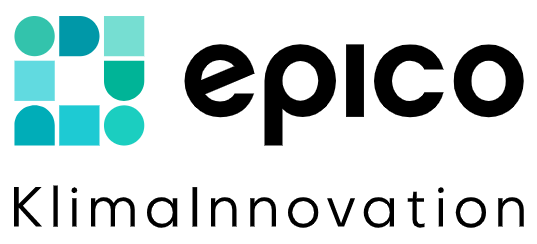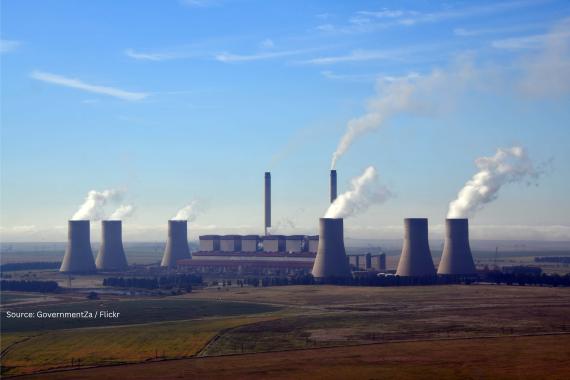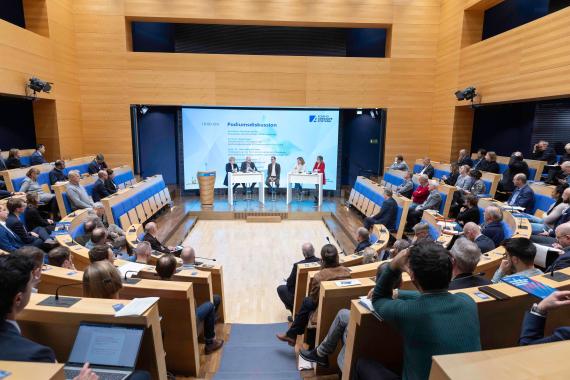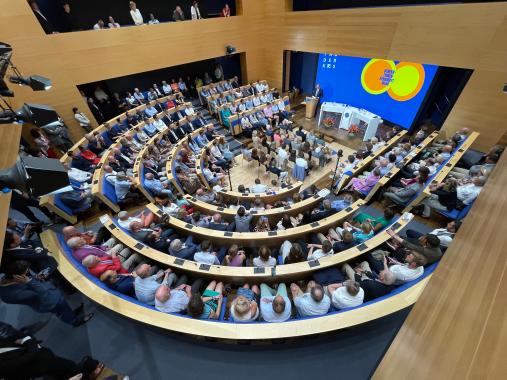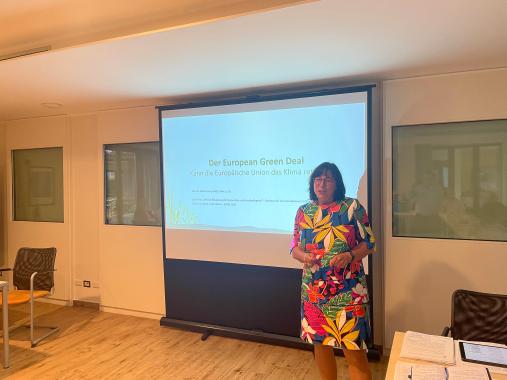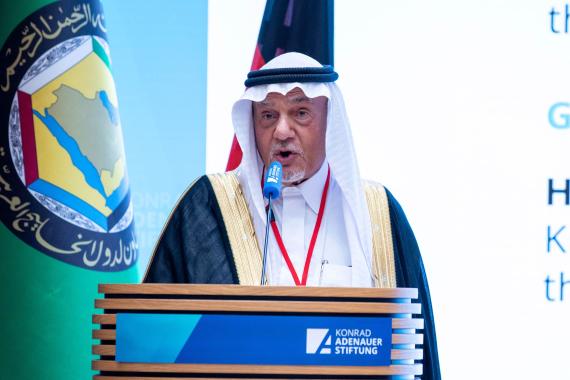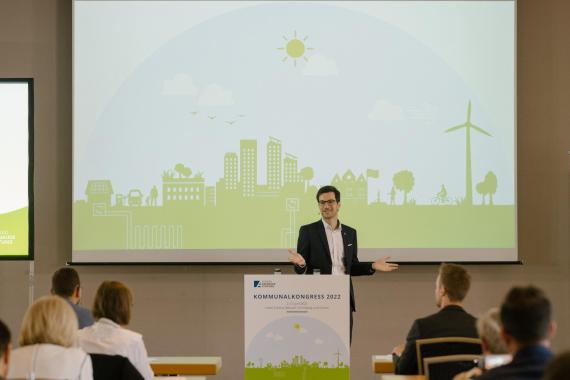Climate change is about all of us. We have the duty to act and the power to lead.
At a glance
- Combating man-made, rapidly progressing climate change requires consistent action. Germany has set itself ambitious goals in this regard and aims to be climate-neutral by 2045.
- The highest priority when achieving climate neutrality is a sustainable energy policy and the switch to a Co2-neutral energy production.
- Security of supply must play a central role in energy policy. We are therefore looking at tools and technologies that may in future be of great importance for the success of the energy transformation.
- Stable energy prices secure the competitiveness of Germany as an industrial location while also preventing the migration of energy-intensive industries to states with lower climate regulations (carbon leakage).
Content
1. Climate change as the starting point for a responsible energy policy
2. Decarbonisation as a central goal of energy and climate policy
3. Security of supply must remain guaranteed
4. Stable energy prices are essential
5. Our offers and projects on the topic
6. Publications, events and media contributions on the topic
Climate change as the starting point for a responsible energy policy
Over the past few years, a number of droughts, floods and increased weather extremes have occurred that are connected to man-made climate change. This is attributed to the sharp rise in CO2 emissions since the era of industrialisation. Combating the advancing climate change is one of the key global challenges of our time, which also requires consistent action from Germany.
So as to ensure climate protection, in the Paris Climate Agreement Germany has committed to contributing towards meeting the 1.5-degree target and has set itself the ambitious goal of become climate-neutral by 2045.
Decarbonisation as a central goal of energy and climate policy
The priority objective of a sustainable energy policy must be the rapid shift towards a CO2-neutral energy production. This requires a holistic energy transition that involves completely restructuring the energy supply in all sectors and replacing fossil fuels with climate-compatible renewable energies. To achieve this, national instruments need to be closely interlinked with the European Green Deal. In order to reduce CO2 emissions as quickly and efficiently as possible, policy-makers must set framework conditions to enable innovative solutions. Developing specific recommendations for action in this context is an integral part of our work.
Market-based instruments, such as the European emissions trading, which internalises the external costs of CO2 emissions, must be prioritised given that they enable the most efficient and fastest reductions in emissions. Likewise, a successful climate and energy policy is reliant on all available technologies and climate innovations. An openness to technology, such as in the area of negative emission technologies for the capture, storage and use of CO2, is a fundamental prerequisite for successfully pursuing the transformation path towards climate neutrality.
Security of supply must remain guaranteed: Indispensable for a responsible energy policy
The Russian war of aggression against Ukraine has starkly illustrated Germany’s dependence on energy imports and highlights in particular the dangers of one-sided dependencies. Even the fundamentally correct and important expansion of renewable energies harbours challenges for security of supply, however. On the one hand, more decentralised electricity production means that producers and consumers are often no longer in close proximity, while on the other hand, renewable energies are strongly weather dependent and their contribution to the electricity supply is correspondingly volatile.
The Konrad-Adenauer-Stiftung is using a variety of potential instruments that attempt to deal with these challenges and which are crucial for the success of the energy transition. The range of tasks extends from expanding and digitalising grids, making the design of the electricity market more flexible and increasing energy efficiency right through to using alternative emission-free energy sources beyond solar and wind, such as biomass or geothermal energy. In particular, green hydrogen – and for the market launch potentially also blue hydrogen – will play a key role here; both in the storage of energy and the energy supply of industrial processes that cannot be electrified or are difficult to electrify.
Stable energy prices are essential: they secure competitive industrial locations and prevent carbon leakage
As an industrialised country, Germany is dependent on stable energy prices for a functioning social and ecological market economy. Energy and climate policy must therefore guarantee affordable energy prices for Germany as an industrial location. Otherwise there is a danger that energy-intensive industries and companies will migrate to regions with lower climate standards due to a lack of competitiveness. Overall, so-called carbon leakage, i.e. the transfer of emission-intensive processes to world regions with low emission costs and regulations, improves the national carbon footprint, yet this leads to higher CO2 emissions elsewhere.
This therefore needs to be prevented for both climate policy and competition policy reasons. Successful energy and climate policy can thus only succeed globally, and an ambitious climate diplomacy is necessary in order to tackle global challenges and sustainably reduce emissions.
Climate and energy policy should be considered together as part of a holistic approach, in which the reciprocal relationship (of tension) needs to be taken into account. What is thus needed is a carefully thought out and a constantly rebalanced balancing act between climate protection, security of supply and price stability.
Our offers and projects on the topic
Cooperation
To promote a market- and innovation-oriented strategy for climate neutrality, the Konrad-Adenauer-Stiftung cooperates with EPICO KlimaInnovation – a think tank and network for sustainable, market-based and innovation-oriented climate and energy policy.
Cooperation with EPICO KlimaInnovation
The Konrad-Adenauer-Stiftung has been cooperating with EPICO KlimaInnovation since 2021. The think tank has set itself the goal of developing sustainable, market- and innovation-oriented strategies for climate neutrality and contributing towards their implementation. One project is the centrepiece of the cooperation: “Policy Accelerator for Climate Innovation”. Here, clear recommendations for action on key issues of energy policy were developed, as well as targets for achieving climate neutrality. In future, a strong network of politics, business and society will be used to drive forward their implementation.




